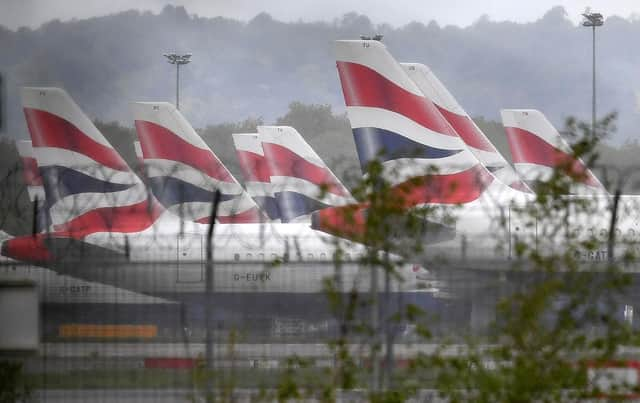UK quarantine rules explained: the 14-day self-isolation period dropped for over 50 countries


A two-week quarantine period for visitors arriving in England has been dropped for dozens of countries
New arrivals to England had been required to quarantine for two weeks from June 8, but now France, Spain and Italy are among the countries which can be travelled to and from without the need to quarantine.
Advertisement
Hide AdAdvertisement
Hide AdScotland is expected to keep strict rules in place for all countries until July 15.
Travel Secretary Grant Shapps celebrated the move saying: "Today marks the next step in carefully reopening our great nation.
"Whether you are a holidaymaker ready to travel abroad or a business eager to open your doors again, this is good news for British people and great news for British businesses.
"The entire nation has worked tirelessly to get to this stage, therefore safety must remain our watch word and we will not hesitate to move quickly to protect ourselves if infection rates rise in countries we are reconnecting with."
Which countries are exempt from quarantine?
Spain, France, Italy, Germany and most EU countries all feature on the list of quarantine-free countries.
Long-haul destinations including Australia, New Zealand, Thailand and Sri Lanka are also thought to be on the list
Travellers from Greece and the United States will still be required to quarantine.
How the quarantine measures work?
Arrivals to the UK will be required to self-isolate at a private residence for 14 days.
Advertisement
Hide AdAdvertisement
Hide AdUnder the new measures international travellers could face spot checks and £1,000 fines if they fail to self-isolate for 14 days after arriving in the UK
Exemptions for road hauliers and medical officials will apply, while the common travel area with Ireland will be unaffected.
Arrivals from France will not be exempt, a senior Government official confirmed, following confusion earlier this week.
Travellers will be asked to fill in a form with their contact information, and health officials will perform spot checks to ensure compliance with the measures.
The UK government has said that these measures would apply not just to those arriving by air travel, but by other means of transport such as ferry.
The 14-day quarantine period will apply to British citizens as well as foreign nationals.
“Air bridges” between the UK and countries with low infection rates could be put in place by the end of June, preventing the need for a 14-day quarantine.
Am I required to wear a face mask while travelling?
The UK and Scottish governments advise the use of face masks or coverings when in enclosed spaces, such as airports.
Advertisement
Hide AdAdvertisement
Hide AdStansted and Manchester airports are among those who have told travellers to wear face masks and gloves while travelling.
Air France and several US airlines have already made the wearing of face masks compulsory.
Large scale temperature check facilities are also being trialled at London Heathrow airport.
Is it safe to travel?
The World Health Organisation (WHO) has said that the quality of air on flights is carefully maintained and changed up to 30 times an hour.
If patients are sat in close vicinity however, there is a higher chance of coronavirus spreading.
Public Health England have advised passengers to sit as far apart from each other as possible in order to reduce the chance of catching the disease.
If unwell or exhibiting any of the key symptoms of Covid-19, passengers are advised against travelling.